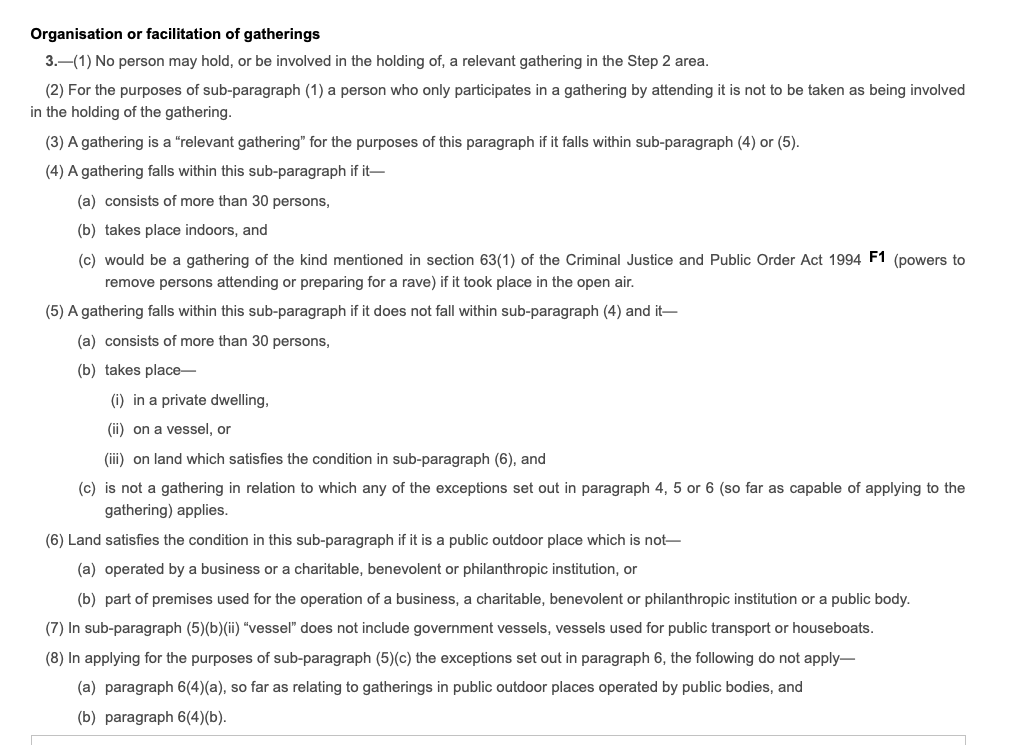
The Johnson apology was carefully worded and obviously lawyered. He said that he attended because he "believed implicitly that this was a work event", that "with hindsight" he should have sent everyone back inside, and "technically" it could be said to fall within the guidance.
The apology - when read carefully - was to the millions of people who "wouldn’t see it in that way", but because he also said technically it could be said to fall within the guidance he is implicitly saying the millions of people are wrong in their interpretation.
This was only what *he* thought the event was. He "went into the garden to thank groups of staff for 25 minutes [he] believed implicitly this was a work event". So defence is a personal one only and leaves open the possibility the event was something else without him realising
This is very much about his personal liability - he is implicitly denying he knew what the event was, had seen the email or had anything to do with it. Because here's the key point: on the wording of email ("bring your own booze") this couldn't technically have been a work event
Although, he might say that even a boozy party for staff was "reasonably necessary for work" to thank staff for their hard work during the pandemic. I doubt that would hold weight given the govt guidance at the time discouraging workplace gatherings.
Also, how do you believe something implicitly? Is the point that he didn't really understand the rules he had set? Or not particularly engaged with them?
Also, PM has probably been advised that the only possible personal liability would be as an accessory to others' criminal offences (he wasn't outside of his home so not subject to the restriction on movement regulation). So has to say he "implicitly" didn't believe it broke rules
The ultimate point is that at the time if anyone had asked the Prime Minister or Health Minister whether it was lawful to have a social work gathering outdoors for 100 with alcohol and food they would have answered with a very hard "no". This is all ex post facto face saving
It is proper nonsense and doesn't make any sense at all given what the government were telling everyone else to do at the time.
Also, if any photos or video appear and it looks like a party then the whole defence of "I didn't know it was a party" goes out of the window.
The irony of it being the prime minister, not his “Islington lawyer” opponent, excusing his actions on a “technicality“
Less polite version of my thread in one tweet
https://twitter.com/Dominic2306/status/1481243235968237576?s=20
I think I called it quite well actually
• • •
Missing some Tweet in this thread? You can try to
force a refresh














